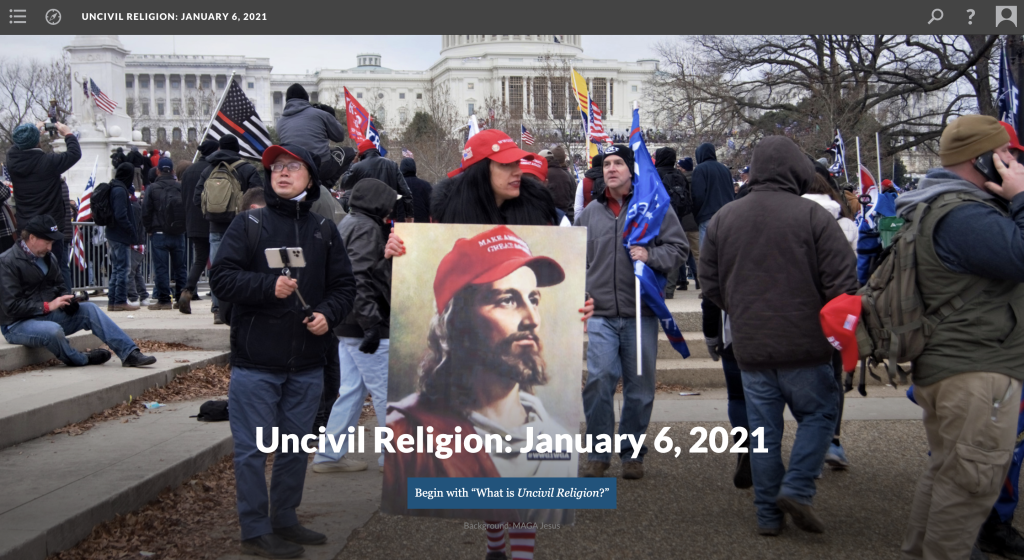
Following announcements from the Smithsonian’s National Museum of American History and the University of Alabama, the Department of Religious Studies is proud to announce a new digital resource produced in collaboration with the Smithsonian’s National Museum of American History’s Center for the Understanding of Religion in American History
Uncivil Religion uses publicly available digital media to trace the threads of religious symbols, ideas, discourses, and identities throughout the events at the U.S. Capitol on January 6, 2021. Launching just days before the one year anniversary, the project includes a series of interpretive essays and a curated set of galleries of digital media that represent the various ways religion showed up that day. The essays, all of which were written by internationally recognized scholars of religion and politics, use individual examples of digital media from January 6 to explore the larger role of religion before, during, and after that day.
Prof. Mike Altman, from UA’s Department of Religious Studies, and Dr. Jerome Copulsky, a consulting scholar at the National Museum of American History’s Center for the Understanding of Religion in American History, are the project’s directors. Dr. Peter Manseau, Director of the Center for Understanding Religion in American History at the National Museum of American History, serves as project advisor. Religious Studies graduate students from the REL 502: Public Humanities and Religious Studies course in the Fall of 2021 provided research and digital expertise to the project. The REL Digital Lab, within the Department of Religious Studies, and eTech, within the College of Arts and Sciences at the University of Alabama, provided additional technical resources, consulting, and support.
Uncivil Religion is an exciting new collaboration between the museum and the department and we are hopeful that it can grow. It is a resource that will be of value to teachers, scholars, and anyone interested in better understanding the role of religion in politics.